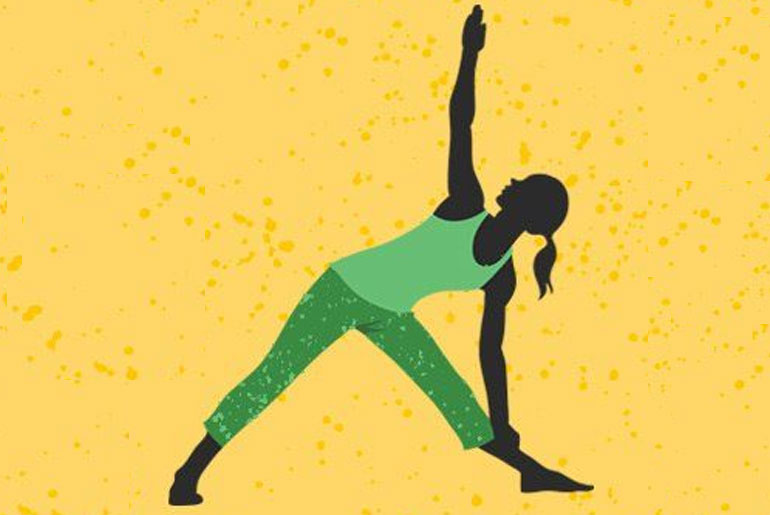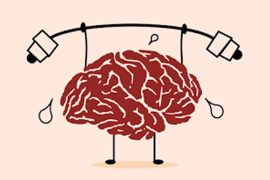Yoga, a practice with thousands of years of history, offers both physical and psychological benefits, and you don’t need to be an expert to experience its advantages. Yoga enhances flexibility, strength, balance, and endurance. Psychologically, it fosters mindfulness by increasing awareness of bodily sensations, thoughts, and emotions during practice. Emerging scientific research suggests that regular yoga may positively impact chronic health conditions like asthma, heart disease, and multiple sclerosis (MS). While this research is still evolving, it supports yoga’s potential to contribute to overall health and well-being. Integrating even a few yoga poses into your daily routine can thus offer significant health benefits.
Yoga Benefits:
1. Yoga Boosts Emotional Health and Relieves Stress
- Research Findings: Yoga is associated with lower perceived stress and improved objective stress markers, such as reduced cortisol levels and lower resting heart rates. It helps shift focus away from negative thoughts through dynamic movements and breath work.
- Impact on Mental Health: Benefits are observed in both individuals with mental health conditions, like depression and schizophrenia, and those without. The practice promotes relaxation and mental clarity.
2. Yoga May Improve Sleep Quality
- Recommended Practices: Gentle yoga before bed, such as forward fold (Uttanasana) or legs-up-the-wall pose, can help relax the body and mind, aiding in falling asleep and improving sleep quality.
- Expert Opinion: Yoga helps calm the nervous system, making it an effective pre-bedtime routine for those with insomnia or sleep difficulties.
3. Yoga May Help Alleviate Hangovers
- Anecdotal Evidence: While scientific research is limited, anecdotal evidence suggests that yoga might help mitigate hangover symptoms. Increased blood flow from yoga may aid in eliminating alcohol toxins.
- Practice Tips: Begin with gentle poses and adjust intensity based on how you feel, especially if experiencing nausea.
4. Yoga Can Aid Chronic Back Pain Relief
- Effectiveness: Yoga improves flexibility and muscle strength, which can alleviate chronic back pain. It has been found to be more effective than traditional care for enhancing back function.
- Recommended Styles: Gentle forms of yoga, such as hatha or Iyengar, are preferred to avoid injury. Consultation with a doctor is advised for those with existing back problems.
5. Yoga Supports Heart Health
- Benefits: Yoga can reduce cardiovascular risk factors like high blood pressure. It improves heart function, increases exercise capacity, and enhances quality of life for patients with heart conditions.
- Mechanism: By combining physical activity, breathing exercises, and meditation, yoga helps relax blood vessels and reduce the heart’s workload.
6. Yoga Eases Arthritis Pain
- Advantages: Regular yoga practice helps maintain joint flexibility, muscle tone, and weight management, which are crucial for arthritis pain relief.
- Impact: Studies show improvements in pain and joint function. Yoga’s gentle movements are less stressful than other workouts.
7. Yoga May Help with Asthma Symptoms
- Evidence: Yoga may improve quality of life and symptom management for individuals with moderate asthma. However, more research is needed to confirm its effects on lung function.
- Mechanism: Breathing exercises in yoga help relax lung muscles, which can reduce stress and assist with breathing regulation during asthma attacks.
8. Yoga Can Benefit Individuals with Multiple Sclerosis (MS)
- Improvements: Yoga can enhance physical function, balance, muscle alignment, and mood in people with MS. It helps with walking speed, pain, fatigue, and concentration.
- Benefits: Regular practice promotes relaxation and reduces overall stress, improving daily functioning and quality of life.
9. Yoga May Help Reduce PTSD Symptoms
- Potential Benefits: Yoga’s stress-relief and well-being promotion can be beneficial for those dealing with post-traumatic stress disorder (PTSD). Although more research is needed, existing evidence suggests it can help with PTSD symptoms.
In summary, yoga provides a wide range of health benefits, from enhancing emotional well-being and improving sleep to aiding in the management of chronic pain, heart health, and specific conditions like asthma and multiple sclerosis. Its holistic approach combining movement, breath, and mindfulness makes it a versatile practice for overall health and well-being.
Disclaimer:
The information contained in this article is for educational and informational purposes only and is not intended as a health advice. We would ask you to consult a qualified professional or medical expert to gain additional knowledge before you choose to consume any product or perform any exercise.







